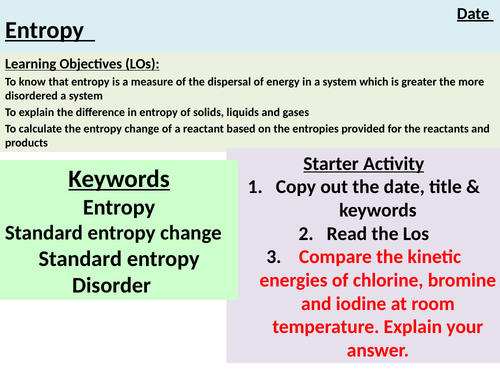Entropy
Subject: Chemistry
Age range: 16+
Resource type: Lesson (complete)



A structured KS5 lesson including starter activity, AfL work tasks and practice questions with answers on Entropy
By the end of this lesson KS5 students should be able to:
Declaimer: Please refrain from purchasing this popular resource for an interview lesson or a formal observation. This is because planning your own lessons, including using your own lesson PowerPoints, is a fundamental skill of a qualified/unqualified teacher that will be assessed during the scenarios outlined above
Something went wrong, please try again later.
This resource hasn't been reviewed yet
To ensure quality for our reviews, only customers who have purchased this resource can review it
Report this resourceto let us know if it violates our terms and conditions.
Our customer service team will review your report and will be in touch.